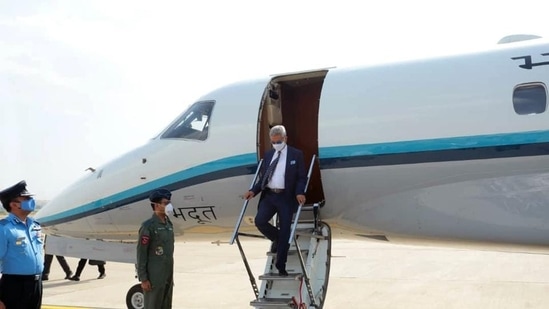India-SCO: New platform, common ground
The study has been authored by Rajiv Bhatia.
In the past eight months since this essay was written as part of the compendium India & SCO in the 21st century published by Gateway House, several important developments took place that showed the steady evolution of Shanghai Cooperation Organisation (SCO) and India's activist role in it. A quick look may be instructive.

On November 10, 2020, Russia hosted the 20th SCO Heads of State summit in the virtual format, a first for this regional grouping. Prime Minister Narendra Modi emphasised India's strong cultural and historical links with the SCO region, reiterated its commitment to the grouping, and expressed strong support for enhancing connectivity through multiple initiatives such as the International North-South Transport Corridor, Chabahar Port and Ashgabat Agreement. He also articulated New Delhi’s faith in “reformed multilateralism” as a means to alleviate the world’s suffering during the era of Covid-19. Later, in a wide-ranging Moscow Declaration, SCO leaders reaffirmed their resolve “to strengthen the SCO as one of the pillars of the emerging more representative world order”.
On November 30, 2020, India hosted the 19th summit of the SCO Heads of Government where all member-countries were represented. The summit was chaired by Venkaiah Naidu, Vice-President of India. In his inaugural statement, he spoke of India's commitment to take “our cooperation with SCO to new heights”. But he criticised attempts (by China and Pakistan, without naming them) to deliberately bring bilateral issues into SCO in violation of its charter. Given the political constraints (as India's relations with Pakistan and China stood at a low point) and its assessment of SCO’s economic potential, New Delhi adopted “a defensive-assertive strategy.” Many of the practical ideas for cooperation put forward by the Indian delegation found place in the joint communique, thereby giving India an opportunity to enhance its pursuit of greater connectivity and cooperation.
On July 13-14, 2021, External Affairs Minister S Jaishankar visited Tajikistan to participate in the meeting of the SCO Council of Foreign Ministers as well as the SCO Contact Group on Afghanistan. The deliberations were largely dominated by fast-paced developments in Afghanistan, following the United States’s decision to withdraw all troops by end August 2021 and the acceleration of fighting between the Taliban and government troops. In a joint statement on Afghanistan, the foreign ministers condemned the violence and terror attacks and called for progress in building “a peaceful, stable and prosperous” Afghanistan.
Separately, speaking at a conference on “Central and South Asia: Connectivity” in Tashkent (Uzbekistan) on July 16, 2021, the Indian external affairs minister stressed that “robust connectivity” within and between Central Asia and South Asia was rooted in history. India strove, he stressed, to re-build old links that were diminished in the colonial period, as economic growth was universally driven by three Cs--connectivity, commerce and contacts.
The study can be accessed by clicking here
(The study has been authored by Rajiv Bhatia)
All Access.
One Subscription.
Get 360° coverage—from daily headlines
to 100 year archives.



HT App & Website







